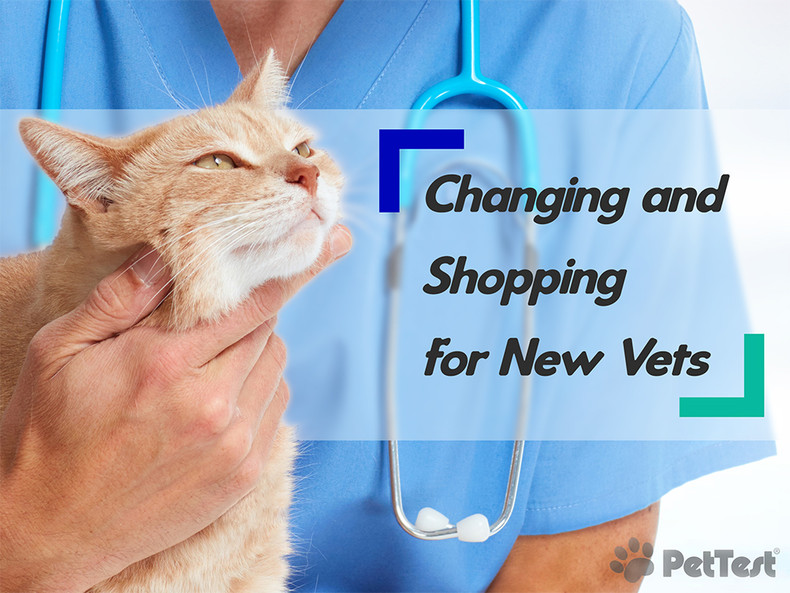Changing and Shopping for New Vets
There are many situations that might require a change in veterinary care. When it comes to the diabetic kitty, the biggest red flag is the care plan that includes insulin without testing before every dose. I have seen recommendations from testing once a week or even none at all with a consistent dose of insulin. This will NOT help us make it to the goal of remission! Blood sugars will fluctuate based on diet and insulin given. Stress also can have an effect. Testing is so important to get kitty stabilized. If your vet is not on that page, you need a new vet. Seriously.
Life also happens even to our beloved vet who took our calls and treated our fur babies with care and patience without overcharging or getting frustrated with our concerns. Vets change practices, move, and retire. Fur parents get transferred, change jobs, move, and retire too! Sometimes you see the new vet in the office and just don’t “feel it”. It is important to have a trusting relationship with your kitty’s doctor just as you would want with your own physician.
Ideally, all veterinarians can keep up with all the American Animal Hospital Association Health Guidelines at all times, but vets are people too with families and lives outside the office. Not every veterinarian office is going to feel the need for accreditation especially if they do not normally handle special needs animals. In my experience, the best way to find a good vet is through personal recommendations. If you know someone else with a special needs animal, that would be the person to ask first. Nothing beats a personal referral. The Feline Diabetic Support Group on FB has information on what to look for in vets, and if you find someone in the group in your area, they can probably recommend the vets to consider. However, if you have just moved to a new area or you do not know anyone in your area with a special needs animal, you can use the American Animal Hospital Association Hospital Locator. These are the vets that are more likely to know how to manage the diabetic feline. I say likely because no vet can know it all, and accreditation is only as good as the dedication of those accredited. Therefore, this should be a starter list.
Things to consider:
- Location: How long will the drive be? A 45-minute drive might be nothing to you under normal circumstances, but how is that going to work with a kitty that does not travel well? I have had my share of criers, screamers, pukers, and pee-ers. A 15-minute commute can feel like an hour under those circumstances.
- Availability: Is it going to take two months to get kitty seen as a new patient? That says to me that if you have an emergent problem in the future, you may be stuck with the more expensive animal emergency hospital. Does the vet save open appointment times daily or a few times a week for same-day appointment needs?
- Communication: Can you e-mail, text, or call your vet with questions or concerns without having to travel and pay for another office visit? If the vet is not available, are the veterinary assistants and techs in the office knowledgeable and helpful?
- Treatment goals: Does the vet have an understanding of feline diabetes, odds of remission, and how to get there (proper daily testing, diet etc.)
- “Prescription Diet”: Are they pushing the prescription diet exclusively? I call this a red flag because there is nothing in most of the expensive prescription food that actually requires a prescription. Unless kitty has another specific nutritional restriction that only a prescription food can treat, there is no need to stick strictly to that. There is nothing wrong with trying it, but read the labels kids. Those foods can be just as full of hidden carbs and fillers as any other. (Sometimes more!)
- Home treatment: I prefer to keep as much treatment at home as I can. It is less stressful for kitty and for you if you are comfortable with it. If you have this preference, it may be worthwhile to ask if the vet will allow you to administer subcutaneous (under the skin) fluids at home if the need ever arises. Some vets will say absolutely not, and others are fine as long as they know you know what you are doing.
- Add-on services: This may be a matter of convenience, but one-stop shopping is a good selling point. Can we get all of our meds at the office for a reasonable price? Does the vet have night and weekend staff for boarding or hospitalization?
- Willingness to these questions up front: If the vet is not willing to answer your interview questions, cross them off your list.
No one vet is right for everyone. Personalities are not always compatible, and we all know cats pick who they will put up with and when. If you do not feel comfortable with a vet or that little inside voice is saying no, it is okay to look for another. You and kitty will be better for it in the long run. If you have found a super star vet to recommend, join the Feline Diabetic Support Group on FB.
Next week I will discuss boarding versus pet sitters and what to consider in each.

